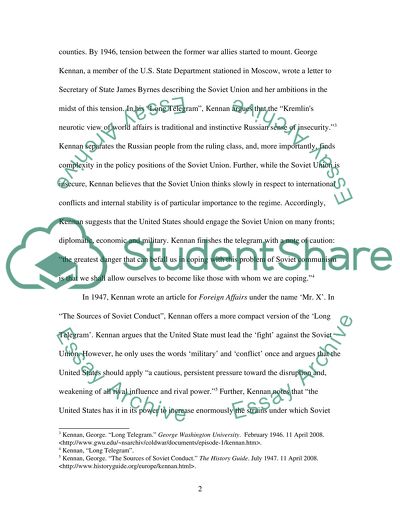Cite this document
(“US cold war foreign policy Essay Example | Topics and Well Written Essays - 1250 words”, n.d.)
US cold war foreign policy Essay Example | Topics and Well Written Essays - 1250 words. Retrieved from https://studentshare.org/politics/1510246-us-cold-war-foreign-policy
US cold war foreign policy Essay Example | Topics and Well Written Essays - 1250 words. Retrieved from https://studentshare.org/politics/1510246-us-cold-war-foreign-policy
(US Cold War Foreign Policy Essay Example | Topics and Well Written Essays - 1250 Words)
US Cold War Foreign Policy Essay Example | Topics and Well Written Essays - 1250 Words. https://studentshare.org/politics/1510246-us-cold-war-foreign-policy.
US Cold War Foreign Policy Essay Example | Topics and Well Written Essays - 1250 Words. https://studentshare.org/politics/1510246-us-cold-war-foreign-policy.
“US Cold War Foreign Policy Essay Example | Topics and Well Written Essays - 1250 Words”, n.d. https://studentshare.org/politics/1510246-us-cold-war-foreign-policy.


